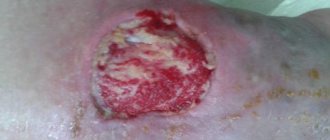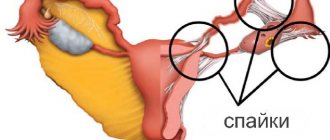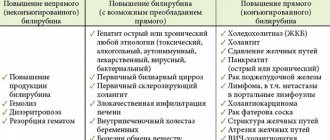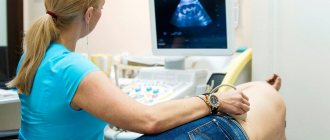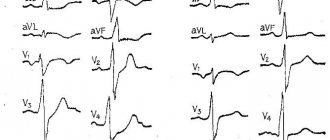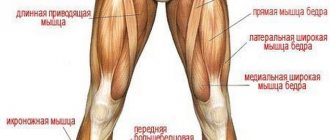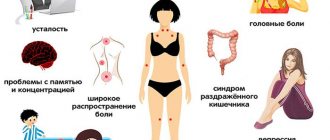Numbness of the lips, or their parasthesia, is an extremely unpleasant condition in which the skin loses sensitivity. At the same time, tingling, tightening, and even burning may be felt on its surface, although not always. This symptom signals quite serious pathological processes in the body, to which one should under no circumstances turn a blind eye.
These can be severe chronic diseases and neurological disorders that require the earliest possible treatment. Therefore, if you feel this, it is important to urgently find out the reasons for the numbness of the lips in your case, so as not to provoke the progression of the pathology.
Ignore or worry?
There are symptoms that should never be ignored, at least if their onset is not accompanied by any irritating factors.
It’s one thing when your lips go numb in extreme cold, or in the dentist’s office who gives you infiltration anesthesia of the tooth, and quite another when it happens just like that, without any triggers or catalysts.
First of all, with such manifestations, you should check the state of your own nervous system - it is almost guaranteed that not everything is all right with it.
However, such symptoms can also signal pathologies of other organs or systems - for example, endocrine.
Let's look at the reasons for numbness of the tongue and lips in more detail in order to understand what to do in this situation.
Why can your lip go numb after visiting the dentist?
Anesthesia is the cause of numbness of the upper, lower, right or left part of the jaw, which is used to reduce pain and discomfort during dental operations (tooth extraction, implantation of pins).
Signs of the medicine's effect are tingling, loss of sensitivity, possible swelling, loss of taste. The tongue, cheek, nose at the tip or completely one side goes numb. Freezing acts locally, after a few hours the effect will pass and a slight twitching will begin.
If a nerve, wisdom tooth, or other gum surgery is performed, damage to the nerve endings may occur. This condition takes a long time to pass, making it difficult to talk and chew food.
Long-term numbness requires careful diagnosis and examination; perhaps the cause is not dentistry, but circulatory disorders, vascular, endocrine or neurological pathologies.
For this use:
- Careful collection of medical history and patient complaints.
- Instrumental diagnostics (computer and magnetic tomography, ultrasound).
- Neurological research methods (sensitivity assessment, identification of associated symptoms).
- Toxicological analysis.
- Blood analysis.
- Study of endocrine glands.
What is the root of the problem?
If your lips are numb, this is a rather alarming sign, which in most cases indicates neuritis of the facial nerve. It begins due to the fact that the brain does not project the “necessary” impulses for facial expressions. Numbness occurs first in one part, then others are involved in the process. For example, this may result in numbness of the chin and lower lip, or numbness of the nose and upper lip.
But the progression of the problem will not end there either. If you do not sound the alarm in time, neuritis can simply paralyze part of your face, severely disrupt your facial expressions, and even provoke a noticeably expressed aesthetic imperfection in your appearance. It is very important to contact a highly specialized specialist in time to avoid such a sad fate.
However, it is not always associated with severe abnormalities, and it is quite possible that it arose due to a banal deficiency of nutrients in the body.
If we talk about neuritis of the facial nerve, you should know that this disease has a purely inflammatory genesis. It progresses quickly and usually begins with a nagging pain behind the ear, after which numbness occurs in one or another part of the face (most often the lips).
In addition, you may notice the following symptoms:
- Weakness, paralysis or paresis of facial muscles;
- Hearing impairment;
- Dulling of taste and smell;
- Lack of salivation;
- lacrimation;
- Facial asymmetry.
It is worth understanding that this disorder has its own genesis and etiology. It usually develops as a result of previous diseases, especially herpes and meningitis. But it can also be separate, independent. Whatever the nature of this disorder, you should urgently consult a doctor even if the primary clinical manifestations of the disease are detected.
To treat neuritis, the doctor will prescribe you additional B vitamins, as well as non-steroidal anti-inflammatory, decongestant and vasodilator drugs. Perhaps, to neutralize the symptom, you will be shown physical therapy.
Characteristic
Numbness of the lips, or scientifically “paresthesia,” is a loss of sensitivity in the upper layers of the epidermis on any part of the face. This condition can occur due to a number of reasons. The main factor provoking the formation of the symptom is a strong weakening of the patient’s immune system.
The manifestation of such symptoms signals the development of some problem in the body. If the upper lip is numb, this indicates a lack of vitamins or microelements in the internal organs. The disease can act as a side effect from previously suffered serious illnesses.
The development of paresthesia is triggered by problems in the conduction of nerve endings. The latter belong to different parts of the central nervous system of sensitive or peripheral types.
The disease affects elderly people or patients with a predisposition to the pathological process. People who are often in stressful situations or have problems with teeth or gums complain of loss of sensitivity in the upper layers of the epidermis. Numbness is observed in patients with neurotic disorders or in those patients who have endocrine diseases.
If there is numbness of one lip or both at once, the warmth of the fingers and pain are not felt when touching. In this case, there is sensitivity of the skin on the lips when touched or pressed with fingers. The process develops due to damage or irritation of nerve endings, and can also be triggered by disturbances in the circulatory system.
If numbness appears in one area for a long period of time and does not go away, then loss of sensitivity is a sign of complete death of nerve endings. Therefore, if discomfort occurs on the skin of the face, it is recommended not to hesitate, but to immediately consult a doctor.
Hypovitaminosis
Very often, paraesthesia of the lips is associated with a deficiency of certain vitamins and microelements in the body.
In the vast majority of cases, this concerns B vitamins - biocatalysts for the normal condition and functioning of the entire nervous system. If you have an acute deficiency in your body, not only your lips, but also, for example, your limbs may go numb.
This is especially true for vitamin B12 deficiency - cyanocobalamin. If you follow a vegetarian diet, this development is quite logical for you, because this substance is concentrated mainly in meat foods.
You should not assume that hypovitaminosis is a frivolous problem that you should not even concentrate on. When something hurts, or other unpleasant changes occur in your body due to this problem, your body signals to you that it has exhausted all its resources and urgently needs replenishment. Typically, paresthesia of the lips due to hypovitaminosis B12 is followed by a host of other pathological developments that provoke truly serious health problems, including dementia and other abnormalities of this kind.
However, you should not draw such conclusions on your own, and rely on vitamin complexes with such guesses. You should consult a doctor so that he can identify the exact problem and prescribe appropriate treatment. If your lower lip and chin are numb, you may be lacking not only vitamin B12, but also vitamin B2 or B6.
Causes of symptoms
Dizziness and numbness of the tongue appear when the nutrition of the brain deteriorates or when the functioning of the nervous system is disrupted. These symptoms may indicate:
cervical osteochondrosis. When degenerative changes in the intervertebral discs occur, they are destroyed and provoke compression of blood vessels and nerve endings.
This leads to a deterioration in the flow of blood and oxygen to the brain, the transmission of nerve impulses to all organs and systems. Such disorders manifest themselves as dizziness, pain, paresthesia of various localizations;
multiple sclerosis;
- infectious diseases that affect nerves;
- high or low blood pressure;
- Bell's palsy;
- glossalgia;
- dysfunction of the thyroid gland;
- head, neck, jaw injury;
- vegetative-vascular dystonia;
- migraine;
- anemia.
- long-term use of antibiotics;
- alcohol abuse;
- smoking;
- frequent stress;
- lack of sleep;
- excessive physical activity;
- hormonal imbalance;
- deficiency or excess of minerals in the body;
- dental procedures;
- poor nutrition;
- radiation, chemotherapy.
There are other, non-pathological causes of dizziness and paresthesia of the tongue. These include:
There are many reasons why your tongue becomes numb or dizzy and your tongue loses sensitivity. But if you pay attention to your overall health when these symptoms occur, you can help your doctor make a diagnosis faster and decide on treatment tactics.
Numb chin syndrome
If parasthesia is localized only to the lower part of the mouth and chin area, this may indicate a disorder such as numb chin syndrome. In this case, the disorder can affect the entire lower jaw, right down to the earlobes. Also, the tip of the nose and tongue may be involved in the pathological process.
In this case, the lips may become numb due to serious systemic diseases (for example, autoimmune diseases), or metastasis from cancerous tumors. The syndrome also requires immediate medical intervention, since it is important to start causal therapy.
What it is
The symptom develops if some part of the nerve pathway from the skin to the brain is temporarily affected. In some cases, the “command” to feel numbness comes from the brain during a stroke, micro-stroke or brain tumor.
This may also be a sign of circulatory problems in some part of the body, when the diameter of the artery supplying it decreases. There is such a dependence: the larger the area of numbness, the larger the diameter of the artery that is damaged.
When not to be scared
Numbness is normal if:
- the symptom occurred after being in an uncomfortable position or being squeezed;
- some muscle is inflamed;
- the manipulation was carried out under local anesthesia;
- appears after a part of the body is exposed to extreme cold, including after exposure to liquid nitrogen on the area (for example, when removing warts, moles or other formations).
Hypoglycemic syndrome
In case of numbness of the upper and lower lips, a disorder such as hypoglycemic syndrome may occur. This is a condition in which blood glucose levels drop to a threshold of 3.5 mmol/L. Such a violation can also lead to potentially harmful reactions. It develops systematically and consistently. As a rule, numbness of the lips occurs when the hypoglycemic syndrome is actively progressing.
Hypoglycemic syndrome manifests itself depending on its current stage.
- At first, the patient experiences irritability, apathy, fatigue, and a feeling of hunger even after eating.
- At the second stage, abnormal aggressiveness is replaced by inappropriate joy, slight tremors of the limbs, and increased sweating are noted.
- In the third, convulsive conditions develop, muscle tone and blood pressure increase.
- On the fourth, coma sets in. The most common complication of this condition is cerebral edema, which is fatal.
If you suffer from diabetes and feel numbness in your lips, you urgently need to check your glucose level using a glucometer, and, if it decreases, replenish your blood glucose reserves. If this condition develops on its own, it is important to urgently contact a competent specialist in the field of endocrinology.
Diagnostics
The trigger factor for why the upper lip or lower lip becomes numb can be determined by the clinician only after studying the results of laboratory tests and instrumental procedures. However, the first stage of diagnostic measures includes:
- studying the medical history - to identify a chronic disease, the beginning of an exacerbation period, which leads to the expression of the main symptom;
- collection and analysis of life history - necessary to confirm or refute the influence of a physiological etiological sign;
- A thorough physical examination of the patient is aimed at palpating the problem area. During such manipulation, the doctor monitors the person’s reaction;
- a detailed survey - to determine the severity of the main symptom and draw up a complete clinical picture, which can sometimes indicate an underlying disease.
Carrying out an ECG
Laboratory and instrumental diagnostics can be aimed at:
- general clinical and biochemical blood test;
- general urine analysis;
- toxicological blood test;
- electroneuromyography;
- Dopplerography;
- rheovasography;
- radiography and ultrasound;
- CT and MRI;
- EEG and ECG.
The results of such general procedures will give the neurologist reason to refer the patient for evaluation to other clinicians, such as an oncologist, endocrinologist, neurosurgeon, otolaryngologist, dermatologist, dentist, and podiatrist.
Hypertensive crisis
Numbness of the lips is a frequent companion to a hypertensive crisis. Chronic hypertensive patients know how to quickly stop this condition, but those who encounter it for the first time should definitely consult a doctor. In addition to prescribing treatment, he must differentiate and establish the correct diagnosis, as well as help you understand the causes of this pathology. It is extremely important to take measures to prevent future crises, since this condition is often life-threatening.
In addition to numbness of the lips, during a hypertensive crisis the patient feels:
- Severe headache;
- Chest pain (usually pulling, pressing, encircling, without clear localization);
- Convulsive syndrome;
- Vomiting;
- Shortness of breath and constant lack of air;
- Impaired coordination of movements;
- Transient paralysis;
- Disorders of consciousness.
Sometimes patients with a hypertensive crisis require urgent hospitalization, so if their condition worsens, you need to call an ambulance.
Cardiovascular disorders
A very serious cause of tongue numbness is “vascular accident.” Strokes and other ischemic episodes rank first in mortality (see the first signs of a stroke). Therefore, it is important to know the main signs of the disease.
- Numbness and paralysis of part of the face, usually one half (eye closed, corner of mouth downturned)
- The patient's speech is slurred or absent
- Movement of the arm and leg on one side is difficult or impossible
- Coordination is impaired (see stroke risk test)
- Consciousness may be depressed
To provide assistance to such a patient, it is necessary to stay within the “therapeutic window”, usually up to 6 hours from the moment of the first signs (see ischemic stroke: treatment, consequences). In this case, it is possible to use surgical treatment methods and completely restore speech and muscle function. Conservative treatment of stroke comes down to recovery in rehabilitation centers after a stroke, as well as:
- Maintaining normal blood pressure levels
Interesting article, thanks. But guys, judge for yourself, the beginning of the article, what kind of doctor? Which specialist should you contact in the first stages, dentist, therapist, etc. For example, I have been suffering from pain in my side for a year and a half, all the doctors are fine, they will prescribe a course of treatment, they will take away money from paid clinics, drug tests, and the end result is what I left with. Now, too, like numbness of the lips in the oral cavity, as if the skin of the lips has become thinner from the inside, the edge of the tongue feels like it’s baking. And where to go. Well, the person read about yet another stack of diseases and symptoms, what should he choose now? Understand those people are the same, what should they do.
Valery, if you have any symptoms or ailments, first of all contact your therapist, he will determine the direction of further examination and refer you to a specialist. Also a dentist - you need to contact him generally once every six months, for the prevention and timely detection and treatment of diseases of the oral cavity and teeth. In your case, there is a very high probability of diseases of the gastrointestinal tract, atrophic changes in the oral cavity, stomach and intestines are not excluded, there may be dysbacteriosis, there may even be oncology - it can be anything. Go to a therapist, do an FGDS (fibrogastrodudenoscopy), colonoscopy, get tested for tumor markers, and other tests that he prescribes. If you smoke, quit smoking.
everything that is written above seems to be already at the stage of the disease, and the tip of my tongue is a little numb and the right side of my lips is a little reminiscent of the mild action of an injection when visiting the dentist... I have allergies, sometimes they break out, but I couldn’t find out the reason why she. How can I find out why I have this feeling on my tongue and lips?
Cause of lip numbness after chloride
I have anemia of half of my tongue and lower lip on the left side, what to treat
My tongue and the left side of my face went numb after tinnitus; before that, my head and back hurt every day for half a year. I sat on the windy side, it was constantly drafty. My salivary glands were enlarged and the pain was unbearable. There was herpes on the lips (but herpes happened often). Nothing hurt for 4 months, I was just surprised, but my tongue really went numb until severe pain came. Headache, tongue pain. Some hematomas appeared on the affected side of the tongue. I didn’t find it difficult to understand the text, I only see the letters, but I don’t understand the meaning. I was in the hospital 8 times, I bow to our doctors, the pain was relieved. Only for 2 years now the tongue and face have been numb, but only the tip and left half of the tongue, the left gum and lip and slightly the face. I'm drinking Actovegin and it seems to be getting better. This is how I caught a cold on my trigeminal nerve (I didn’t think I’d get sick like that for a long time)
Hello! All my problems started a year ago, in October 2016. I had my 8th tooth (wisdom) removed because I needed braces. I didn’t have enough space for my teeth, and the wisdom tooth was growing towards other teeth, and the roots were located below the nerve, I had to cut, saw... and in the end they pulled it out.. And so it began... I came home, an unpleasant sensation but it doesn’t hurt... strange... and In the evening I still see something silent... I wait for the morning, I wake up and my lip and tongue and beard are silent... I go to the doctor and have a look... I give him some B vitamins to drink, he says the tooth was very deep, the nerve passed by it... he says it will pass... Wait a month... But at the same time, it started to pull all over the right side... I take vitamins and wait, it goes away slowly, after a month I didn’t bite my lip when chewing, but still the dumb body (half the lip, and half the beard under it) seemed to go away... and now I’m still waiting... and then almost a year later, in September 2021, the entire right side of my body began to go numb... That is, the teeth on the lower right side suddenly became mute (when I chew as if it were not my teeth, I can bite my tongue on the right...) Hand and my leg seemed to have lost sensitivity compared to the left side and sometimes my arm or leg hurt, my fingers trembled slightly, my right leg had very pronounced convulsive reflexes... I started going to neurologists... when he pricked me with a needle, checking for sensitivity, on the right they were less pronounced tingling sensation, this had never happened before when examined by a neurologist. I thought it was some kind of nervous disease... I did an MRI of the head without any changes, with Doppler of the neck they said that upon exiting the blood circulation was slow, dizziness, my head hurt on the right, I often can’t turn my head to the right, my neck hurts and then it goes away after two days on its own. I tested for antibodies to Lyme, Burchela, CMV, Epstein Bar, everything was negative. Please tell me, is this loss of sensitivity in the body on the right and trembling in the hand, numbness of the lower teeth on the right related to tooth extraction? It’s possible to do something, I don’t know what to do anymore... Thank you very much.
Dizziness, numbness of lips.
Migraine with aura
People who suffer from migraines often experience changes in their sense of smell, vision, and hearing before an attack. Sometimes these are only short flashes - the appearance of lines before the eyes, numbness, tingling of the face. The aura appears one hour before the attack and disappears completely after the condition has returned to normal.
Triptans are used to treat migraines, but the form of the drug and its dosage must be selected by a doctor. Those who often have migraines should reconsider their diet and avoid those foods that can trigger headache attacks. This includes cheese, chocolate, wine, canned food, etc. It is also important to prevent stressful situations as much as possible.
Folk remedies
For some paresthesias, folk remedies help.
- Warm compress with salt. The compress is prepared as follows: pour a few tablespoons of salt into a container with hot water so that the solution is highly concentrated; allow to cool to a tolerable temperature; soak a piece of cotton cloth in this solution and apply it to the numb area for 5 minutes. Can be repeated 3 – 4 times. Salt and heat help relax muscles and relieve spasms.
- Taking relaxing or contrast baths. The effect of relaxing baths is the same as that of a compress. You need to lower the part of the body where the feeling of numbness arose into a container of warm water. In contrast baths, conditions for temperature differences are created. Alternately use hot and cold water. The action causes the blood vessels to alternately dilate and contract, providing additional blood flow to the affected area.
- Acupuncture. A popular method of alternative medicine in the treatment of muscle tension. Acupuncture acts on active points, restoring the movement of energy through the energy channels of the body. Acupuncture successfully treats radiculitis, headaches, vegetative-vascular dystonia, and chronic fatigue syndrome.
- Light massage. The massage is performed without effort or pressure. It can be combined with other types of treatment. With skin and muscle stimulation, blood flow increases and muscles in the affected area relax.
What examinations are required
Before making a diagnosis, any doctor prescribes a series of tests and undergoes the necessary examinations.
Of them:
- Blood test (general, biochemical, hormones, infections, toxic substances). The blood is tested to find out whether there is a harmful agent in the blood or not, whether all substances and cells are in sufficient quantity, or whether something is missing. Along with a blood test, your doctor may prescribe a urine test to get a more complete picture of how your body is functioning.
- Doppler ultrasound (ultrasound examination of neck vessels). If the scalp becomes numb, the doctor may suspect problems with the patency of the blood vessels in the neck. Ultrasound examination helps to visually trace the passage of blood flow (speed, direction) and record obstacles in the vessels (atherosclerotic plaques, blood clots, abnormal bends).
- CT scan of the head. Computed tomography collects information about the state of the brain by taking layer-by-layer images. This way you can see injuries, foreign bodies, inflammation of the membranes of the brain, hemorrhages and tumors.
- MRI of the brain. Magnetic resonance imaging creates a three-dimensional image of organs. All details of organs and tissues are visible in 3 dimensions.
- X-ray of the skull. If there is a symptom of numbness, the doctor may prescribe an x-ray as a diagnosis to identify or exclude pathology from the bones, sinuses, and base of the skull. In X-ray images you can see the soft tissues of the brain and obvious changes in them.
- Angiography of the brain. The procedure is performed with intravenous administration of a radiocontrast agent. It improves the visualization of blood vessels. You can determine their shape, volume and rate of filling with blood, and the tortuosity of the vascular pattern of the brain.


